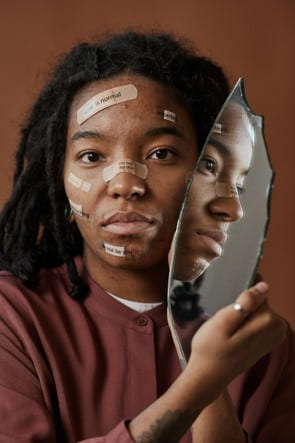By Gaelle Hachem – Staff Writer
Who doesn’t dream of flawless, radiant skin? It’s often seen as the embodiment of beauty, health and vitality! But here’s the annoying truth: acne is a normal part of life, especially for teenagers and young adults. Yet, for many of us, it’s more than just a passing phase – it’s an insecurity we wish to eliminate. For those struggling with severe acne, achieving this dream can feel like a challenge and sometimes an unattainable goal. While different skincare solutions exist, one particular name stands out: Accutane!
Accutane, also known by its generic name isotretinoin, is a powerful medication that is usually taken orally (as a pill) and is derived from vitamin A. It gained approval from the U.S. Food and Drug Administration (FDA) in May 1982, and ever since, it has garnered a reputation as a game-changer in the treatment of severe acne, particularly cystic acne that hasn’t responded to any other kind of treatment. Its mechanism of action is unique: it decreases the size of the skin’s oil glands thus lowering oil production, it also prevents the formation of acne-causing bacteria and clogged pores, and it reduces inflammation on the skin.
For many, Accutane has indeed been a miracle cure, clearing up persistent acne and giving promising long-lasting results when nothing else seemed to work. It has been credited with restoring confidence, improving the self-esteem of individuals, and even preventing long-term scarring. The before-and-after pictures shared on social media by those who have undergone Accutane treatment can be nothing short of outstanding and simply impressive, showcasing dramatic transformations and newfound freedom from the burden of acne!
However, and unfortunately, nothing in life comes for free. Despite its remarkable efficacy, Accutane is not without its drawbacks and controversies. One of the most serious concerns associated with Accutane is its potential for severe side effects. Dryness and irritation of the skin, lips, and eyes, headaches, nosebleeds as well as muscles and joint pain are some of the most commonly reported side effects. Less common but more concerning side effects can include liver damage, pancreas inflammation, diabetes, and in some extreme cases, hearing loss. Accutane has also been linked to sexual dysfunction, but more research still needs to be conducted to be able to fully support this claim.
Not only does Accutane have side effects on physical health, but also mental health. While many individuals experience significant improvement in their acne and overall quality of life with Isotretinoin treatment, there have been reports of psychiatric side effects associated with its use. Some studies suggest a potential link between Accutane and mood changes, depression, anxiety, and even suicidal thoughts.
Also, taking Accutane while pregnant is extremely dangerous for the unborn baby, and can lead to devastating consequences, including miscarriage, stillbirth, and premature birth. Severe birth defects could affect various organs and systems in the developing fetus leading to lifelong disabilities. These defects include small or missing eyes and ears, heart problems, a small head, and an underdeveloped brain. The potential risks of isotretinoin could extend to breastfeeding as well, thus, mothers are usually advised not to breastfeed while taking the medication or must wait for a certain period after discontinuing it.
Due to these risks, Accutane is tightly regulated, often requiring rigorous monitoring and frequent check-ups by healthcare providers. Open communication with healthcare providers is key throughout the treatment process, as they can provide support, monitor for any concerning changes in health, and intervene if necessary to ensure the well-being of the individual undergoing treatment. Patients must adhere to strict protocols, including regular blood tests and pregnancy prevention measures for women of childbearing age. Additionally, some dermatologists may hesitate to prescribe Accutane or recommend it only as a last resort due to its potential side effects.
Despite acne often feeling inevitable and beyond our control, there are indeed healthy practices we can adopt to diminish its severity and potentially avoid resorting to medications like Accutane:
- Wash your skin with the right products: washing your face gently up to twice daily and after sweating can help. Make sure to use gentle, alcohol-free products to prevent skin irritation.
- Resist the temptation: while it may be very satisfying to pick or pop a pimple on your face, touching your face throughout the day can aggravate acne and increase the risk of scarring and hyperpigmentation, and consequently prolong healing time.
- Be patient: sticking to your treatment is key with acne treatments. Avoid switching products too often, as this can irritate your skin and worsen breakouts. Give your chosen treatment time to work, as results may take several weeks to appear.
- Keep your hair clean: oily hair can contribute to forehead acne, so washing your hair more frequently and keeping it away from your face can help prevent breakouts.
In conclusion, Accutane stands as a paradox – a potent remedy that holds both the promise of radiant skin and the shadows of uncertainty. It’s a journey of transformation, where the pursuit of clear skin intertwines with the complexities of its potential risks. Yet, amidst the debate and caution, one truth remains: Accutane can wield remarkable benefits, but only through the lens of informed decision-making and vigilant monitoring. Let us always remember that the pursuit of beauty must always be balanced with the preservation of health!

